We're back to Internet cuts. We pay British Telecom £900 per year for broadband. Two cuts already today, and our TV players apps have been disabled for good measure
Our Church and State website has no less than 57 Nobel Laureates on it; for details, see this blog's sidebar under "Church and State" (updated today).
Article 10 of the European Convention on Human Rights and Fundamental Freedoms formulates what is the core of free speech. "Everyone has the right to freedom of expression." In an important interpretation of this article, the European Court of Human Rights in Handyside v. UK (1976) indicated that this "freedom of expression" should be construed as follows. It "is applicable not only to 'information' or 'ideas' that are favourably received, or regarded as inoffensive, or as a matter of indifference, but also to those that offend, shock or disturb the State or any sector of the population." Such are the demands of that pluralism, tolerance and broadmindedness without which there is no "democratic society" (see Cliteur, 2010).
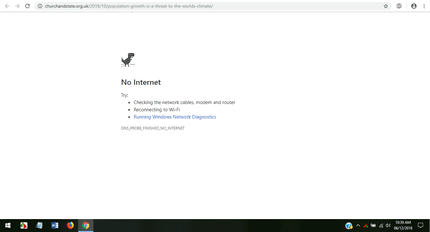
We pay British Telecom £900 per year for broadband.
Update Summation 15 April 2019
312 internet cuts since 26 May 2017 (173 cuts 2017; 122 cuts 2018; 17 cuts 2019). With an all-time record-equalling 7 cuts in one day on 19 June 2018; 22 cuts in May 2018 that included on 8 May the 3rd ever 1/2 hour cut on the same day as Declan's updated complaint to the UN; 16 cuts in August 2018 that included on 17 August an all-time record-breaking cut of 3 1/4 hours; 5 cuts last month that included Facebook's 57th block against our Church and State website since 1 December 2015; 3 cuts this month; 2 cuts so far today (as of 15 April at 2.05pm).
173 cuts 2017
122 cuts 2018
Since May 2018*
- May 2018: 22 cuts
- June 2018 40 cuts
- July 2018 26 cuts
- August 2018: 16 cuts
- September 2018: 0 cuts
- October 2018: 3 cuts
- November 2018: 1 cut
- December 2018: 4 cuts
17 cuts 2019
- January 2019: 4 cuts
- February 2019: 5 cuts
- March 2019: 5 cuts
- April 2019: 3 cuts
* All cuts on old BT router (including in 2019). We have yet to install the BT router we received on 19 August 2018. The bandwidth on our 2nd BT YouView box is seldom sufficient to watch a various number of TV channels (and because of this, our TV usually operates off our TV aerial or our TV viewing restricted to the BBC iPlayer, i.e. when players and apps have not also been disabled, as has occurred 46 times since 10 December 2018 and for up to two days at a time). The fluctuating bandwidth on our 2nd BT YouView box – or the more extreme disconnection of the box from the internet whilst we are already connected online through the router (as has occurred 5 times and has applied since 1pm this afternoon) – has been from the day after we received the box on 8 September 2017, and remains, a constant reminder with respect to whatever BT router we choose to use for our laptops.
7 July 2018: INTERNET CUTS: Are 45-minute Internet cuts to be the new norm? We pay British Telecom £850 per year for broadband (WITH UPDATE 15/4/2019: re 312th Internet cut since 26 May 2017)
312 internet cuts since 26 May 2017 (173 cuts 2017; 122 cuts 2018; 17 cuts 2019). With an all-time record-equalling 7 cuts in one day on 19 June 2018; 22 cuts in May 2018 that included on 8 May the 3rd ever 1/2 hour cut on the same day as Declan's updated complaint to the UN; 16 cuts in August 2018 that included on 17 August an all-time record-breaking cut of 3 1/4 hours; 5 cuts last month that included Facebook's 57th block against our Church and State website since 1 December 2015; 3 cuts this month; 2 cuts so far today (as of 15 April at 2.05pm).
173 cuts 2017
122 cuts 2018
Since May 2018*
- May 2018: 22 cuts
- June 2018 40 cuts
- July 2018 26 cuts
- August 2018: 16 cuts
- September 2018: 0 cuts
- October 2018: 3 cuts
- November 2018: 1 cut
- December 2018: 4 cuts
17 cuts 2019
- January 2019: 4 cuts
- February 2019: 5 cuts
- March 2019: 5 cuts
- April 2019: 3 cuts
* All cuts on old BT router (including in 2019). We have yet to install the BT router we received on 19 August 2018. The bandwidth on our 2nd BT YouView box is seldom sufficient to watch a various number of TV channels (and because of this, our TV usually operates off our TV aerial or our TV viewing restricted to the BBC iPlayer, i.e. when players and apps have not also been disabled, as has occurred 46 times since 10 December 2018 and for up to two days at a time). The fluctuating bandwidth on our 2nd BT YouView box – or the more extreme disconnection of the box from the internet whilst we are already connected online through the router (as has occurred 5 times and has applied since 1pm this afternoon) – has been from the day after we received the box on 8 September 2017, and remains, a constant reminder with respect to whatever BT router we choose to use for our laptops.
7 July 2018: INTERNET CUTS: Are 45-minute Internet cuts to be the new norm? We pay British Telecom £850 per year for broadband (WITH UPDATE 15/4/2019: re 312th Internet cut since 26 May 2017)
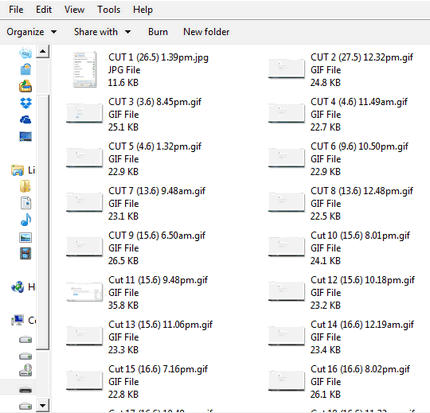
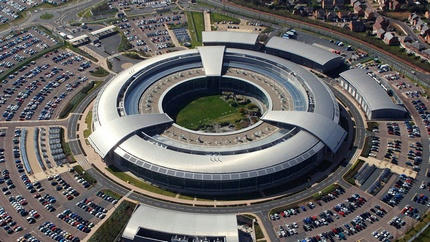
UK Government Communications Headquarters (GCHQ)
Re: GCHQ
Paragraph 12 of Declan's updated complaint to the United Nations under Article 19 (freedom of expression) of the International Covenant on Civil and Political Rights.
12. It is important to underscore that the discriminatory surveillance suffered by the Applicant and his wife is not an isolated event. Rather, it is emblematic of a larger pattern of surveillance by law enforcement officials in the UK that has been well-documented by international and domestic human rights bodies. For example, GCHQ's Joint Threat Research Intelligence Group (JTRIG) specialises in the "4 D's": deny, disrupt, degrade, deceive. It has been branded by the press as the spy agency's "deception unit". Though its existence was secret until 2014, JTRIG has developed a distinctive profile in the public understanding, after documents from NSA whistleblower Edward Snowden revealed that the unit had engaged in "dirty tricks" like deploying sexual "honey traps" designed to discredit targets, launching denial-of-service attacks to shut down Internet chat rooms, pushing veiled propaganda onto social networks and generally warping discourse online. Previous reporting on GCHQ established its focus on what it regards as political radicalism. Beyond JTRIG's targeting of Anonymous, other parts of GCHQ targeted political activists and groups deemed to be "radical", even monitoring human rights NGOs. Simon Davies, founder of the London-based Privacy International, asks: "If spying on human rights NGOs isn't off limits for GCHQ, then what is?"
The category pages in Church and State are under attack daily to fluctuating extent. (SiteGround is paid $1,000 per year to host the site and manage the server.) For example, as I point out in my earlier post about Royal Mail's service, all three of the articles below have over 1/2 million Facebook likes/shares, not zero. This afternoon the first article stands at 829K, the second article at 634K, and the third article at 616K and counting.

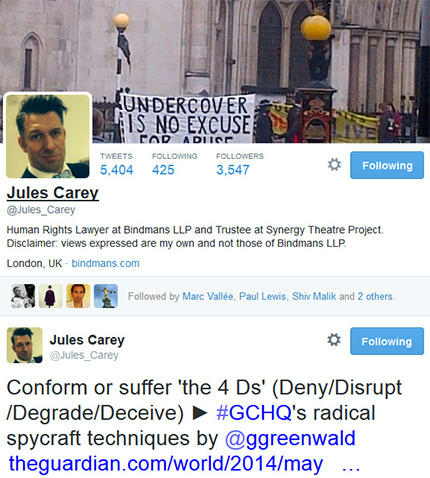
From My Picks:
8 April: Threat to Life: Declan writes to Mayor of London Sadiq Khan about the blockade across London on his volunteer applications notwithstanding his support from the Mayor-commissioned St Mungo's (Local Government Ombudsman Case ID: 18011204)
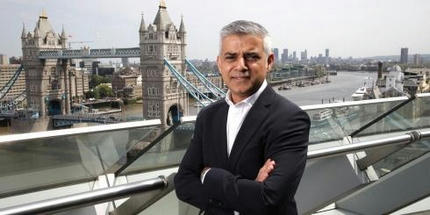
Mayor of London Sadiq Khan
'Let me recommend an important web site churchandstate.org.uk. Operating out of London this well-designed and exciting web site covers church-state, population, climate change and other issues. Check it out.' Edd Doerr, President, Americans for Religious Liberty
http://churchandstate.org.uk/about/

